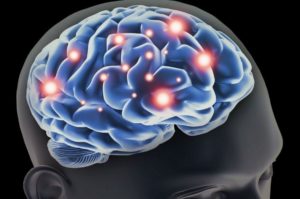The Biology of Gambling Addiction
All addictions have a biological aspect, and gambling is no different. Process addictions like these cause changes in the brain which can be observed. Understanding how these processes affect the brain can be instrumental in gambling addiction treatment.
The main culprit, in this instance, is dopamine. Dopamine is a neurotransmitter (a chemical in our brain) that is involved in feelings of pleasure, reward, and motivation. Naturally, dopamine is released when we accomplish something that is beneficial for our longevity and survival: after having sex, completing an exercise routine, eating a healthy meal, or other similar things.
In the world that we live in, our longevity and survival are often governed by our financial status. We need money to clothe and feed ourselves, to maintain our homes, and to take care of our family. For this reason, the brain is wired to release a tremendous amount of dopamine when we are presented with the opportunity to obtain large sums of money – such as during a gambling session.
The dopamine release that occurs during a gambling session occurs in a part of the brain known as the reward pathway. Unfortunately, consistent activation of this pathway – such as what happens when one is compulsively gambling – leads to a dopamine insensitivity, one of the most devious signs of gambling addiction.
 This means that people tend to require more and more stimulation to release the same amount of dopamine and receive the same amount of pleasure that they originally felt when first winning a bet. This occurs in much the same way that a drug addict requires higher and higher doses of their choice drug to experience the same enjoyment.
This means that people tend to require more and more stimulation to release the same amount of dopamine and receive the same amount of pleasure that they originally felt when first winning a bet. This occurs in much the same way that a drug addict requires higher and higher doses of their choice drug to experience the same enjoyment.
This is also one of the reasons why not everyone understands how to stop gambling addiction. It’s not a simple matter of ‘stopping gambling.’ As a person gambles more and more, their brain becomes reliant on the risk and reward of gambling to release its pleasure chemicals. This means that when a person is unable to gamble, they will be physically unable to produce the dopamine that they need to feel good.
This is the main reason that people go through a psychological period of ‘gambling withdrawal.’ Rebuilding and restoring the dopamine system can take weeks, months, or years, and during this period it can be extremely tempting for someone to return to the casino. This is one of the most significant reasons to seek gambling addiction help.


 Someone who struggles with an addiction to a behavior, such as a problem gambler, is experiencing what is known as a process addiction. Process addictions arise when an individual is so infatuated with a behaviour that they are unable to stop themselves from participating in the behaviour, despite the emergence of problems.
Someone who struggles with an addiction to a behavior, such as a problem gambler, is experiencing what is known as a process addiction. Process addictions arise when an individual is so infatuated with a behaviour that they are unable to stop themselves from participating in the behaviour, despite the emergence of problems. This means that people tend to require more and more stimulation to release the same amount of dopamine and receive the same amount of pleasure that they originally felt when first winning a bet. This occurs in much the same way that a drug addict requires higher and higher doses of their choice drug to experience the same enjoyment.
This means that people tend to require more and more stimulation to release the same amount of dopamine and receive the same amount of pleasure that they originally felt when first winning a bet. This occurs in much the same way that a drug addict requires higher and higher doses of their choice drug to experience the same enjoyment.